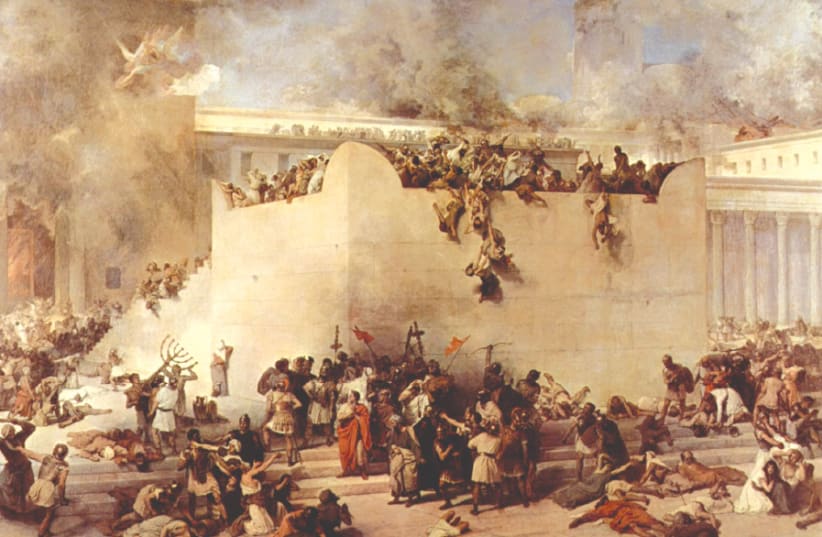The fast, also known as Asarah B'Tevet, was originally established to commemorate the beginning of the siege of Jerusalem by the Babylonian emperor Nebuchadnezzar in 425 BCE. The siege was "the beginning of the end" and continued for 30 months until the walls of Jerusalem were breached, eventually leading to the destruction of the First Temple on the 9th of the Hebrew month of Av in 586 BCE.
The fast of the 10th of Tevet eventually came to commemorate the translating of the Torah into Greek, considered one of the darkest days in Jewish history, and the passing of Ezra the Scribe, the leader who brought back the Jewish people to the Land of Israel at the end of the Babylonian exile.
Asara B'Tevet has also been accepted as a day to say Kaddish for those killed in the Holocaust.
Asara B'Tevet is an unusual fast as it is the only fast that can fall on a Friday. There are two other minor fasts (meaning they last from daybreak to nightfall) observed by Jews: the Fast of Esther and the 17th of Tammuz. The two major fasts (meaning they last from nightfall to nightfall the next day) are the 9th of Av, when the Temple was destroyed, and Yom Kippur, the Day of Atonement.Rabbi Moses ben Maimon, known as the Rambam or Maimonidies, wrote that fast days serve to remind us of "our wicked conduct and that of our ancestors, which resembles our present conduct and therefore brought these calamities upon them and upon us." (Mishneh Torah, Fasts 5:1) The goal of the reminder is so that "we will repent and improve [our conduct]," according to Maimonidies.
Fast Start and End Times: (According to MyZmanim)
Jerusalem
Start: 5:22 AM
End: 5:30 PM
Tel Aviv
Start: 5:24 AM
End: 5:32 PM
Haifa
Start: 5:25 AM
End: 5:29 PM
Eilat
Start: 5:20 AM
End: 5:35 PM
Beersheba
Start: 5:23 AM
End: 5:33 PM
New York
Start: 5:52 AM
End: 5:30 PM
Los Angeles
Start: 5:39 AM
End: 5:40 PM
